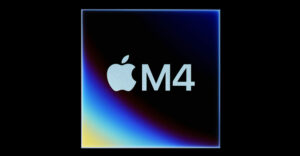
The turmoil surrounding Microsoft’s efforts in the mobile market last year and the spectacularly rapid changes in this sector has raised concern about the company’s hopes of ever catching up to the competition.
Product miscues and a loss of high-profile personnel have contributed to the perception. Robbie Bach, who headed Microsoft’s entertainment division, stepped down in May, just when Redmond unveiled two new Kin smartphones. These devices were pulled in July on what was rumored to be particularly poor sales.
Redmond has been losing mobile market share steadily as Android and Apple’s iOS advance. Gartner’s figures show Microsoft’s share of the global smartphone operating system market fell from 8.7 percent in 2009 to 4.2 percent in 2010. Windows Phone 7, Microsoft’s attempt to break away from its Windows Mobile software, was launched late last year into an already highly competitive market.
Android, for example grew almost 900 percent between ’09 and ’10, from about 4 percent of the market to nearly 23 percent. Apple’s iOS, which had already established a firm foothold, grew about 1 percent during the same period, to nearly 16 percent of the market in 2010.
Though Windows Phone 7 appears to be designed as an answer to the generation of smartphones brought about by iPhone and Android, the fact remains that Microsoft has been producing software for mobile devices for over a decade.
“I would not say that Microsoft is late to the mobile market,” Michael Morgan, a senior analyst at ABI Research, told TechNewsWorld. “I would say that Microsoft missed the shift towards consumer-focused smartphones and the changes in software and design that drove customer adoption of smartphones.”
The Finnish Factor
One factor Redmond has on its side is a deep war chest. In February, Microsoft teamed up with Nokia in a deal reportedly worth US$1 billion in an effort to reverse its fortunes. Though it’s still the largest phonemaker in the world, Nokia has also seen its fortunes slide with the arrival of iPhone and Android.
Will this partnership work? Will Redmond be able to claw its way back into the smartphone market with Nokia’s help? Or will the joint Microsoft-Nokia effort be another spectacular failure like the Kin line?
“There may be hope for Microsoft, and that hope is Nokia,” Ramon Llamas, a senior analyst at IDC, told TechNewsWorld. That’s because Android and Apple’s iOS replicate each other, which makes it difficult for uncommitted consumers to choose between them, Llamas suggested.
“Windows Phone 7 is a much more differentiated product, and you have the Nokia hardware,” Llamas elaborated. “Nokia has put together really incredible smartphones,” he added.
However, technological advantages may not be enough, ABI’s Morgan suggested.
“The Nokia alliance gives Microsoft a handset distribution network, a good hardware manufacturer and some OK software such as Ovi maps to add to its list of strengths,” Morgan explained. “What they did not get is vision into what’s next.”
Microsoft spokesperson Jackie Lawrence declined to comment.
Strategy May Spell Smartphone Success
Perhaps Microsoft’s adopting the wrong strategy in its effort to regain potency as a smartphone player.
“Google and Apple are increasingly targeting the enterprise market with their mobile platforms, while the consumerization of IT is opening up the enterprise market to devices that were initially targeted at the consumer,” ABI’s Morgan stated.
Meanwhile, Microsoft, which has a history of making smartphones for the enterprise, is heading in the opposite direction.
“Windows Phone 7 is made for consumers at the expense of legacy enterprise customers,” Morgan said.
That could lead Redmond to grief down the road, Morgan remarked.
“When Microsoft realizes it’s time to leverage the immense value of having its back-of-house software running on the servers of all these companies, it will probably try to reconnect Windows Phone 7 devices to those servers the way Windows Mobile devices used to be connected in the past,” Morgan said.
“It will be at this point that it will have to contend with all the competition it let in.”
Gagging on the Tablet
Further, Microsoft appears to be missing several opportunities in the new world of tablets. Microsoft hardware partners have been putting Windows on tablet form-factor PCs since long before anyone had even heard of an iPad. But Apple’s device put a new spin on the term — now tablets are small, lightweight computers that run OSes very similar to those found on smartphones, rather than bulky laptops with screens that can be folded flat, running full-scale PC operating systems.
Mobile device OS vendors appear to be following Apple’s lead of offering basically the same breed of OS for both tablets and smartphones. Google is reportedly planning to incorporate features from its Android 3.0 tablet operating system into its Android OS for smartphones, and HP has unveiled a tablet running its webOS operating system, which also runs on its Pre smartphones.
Those who want Microsoft on a tablet, however, have to look at something like the HP Slate, a tablet aimed at business users. Rather than running an expanded version of Windows Phone 7, however, the Slate runs a desktop version of Windows 7.
“Although Windows 7 is a huge improvement on Vista, can Microsoft shoehorn it into a tablet form factor?” IDC’s Llamas asked.
“Microsoft tried to do that with smartphones and the old Windows Mobile operating systems, and it didn’t work,” Llamas pointed out.
Redmond also doesn’t seem to be fazed by the upcoming hurricane of tablet devices expected to flood the market.
Apple’s iPad 2 goes on sale Friday, and tablets from Motorola, RIM and HP are expected to hit retail shelves in April followed by a welter of Android tablets. Samsung will soon release a 10-inch version of its Galaxy Tab to complement the 7-inch version already in stores, and rumors point to a possible 8.9-inch model as well.
However, Microsoft’s real answer to the iPads and Android tablets won’t come along until late next year, according to Businessweek.
“Microsoft’s current products and thinking are not in line with the paradigm shifts that Apple and even webOS brought to market,” Michael Morgan, a senior analyst at ABI Research, told TechNewsWorld.
“I do not believe that Microsoft understands mobility as well as Palm and Apple,” Morgan continued. “If the shift in the smartphone market was not enough of a wake-up call, I would think that HP’s move to webOS would be the final nudge needed to wake the sleeping giant,” he added.





















































